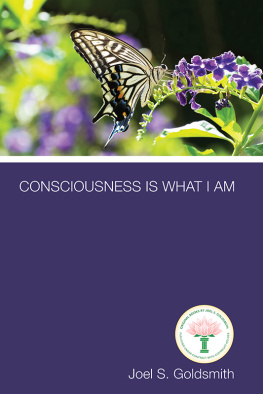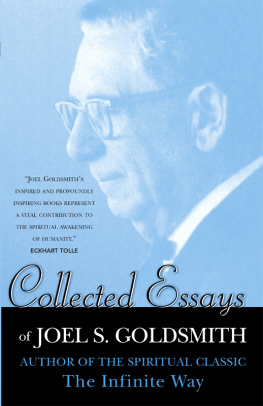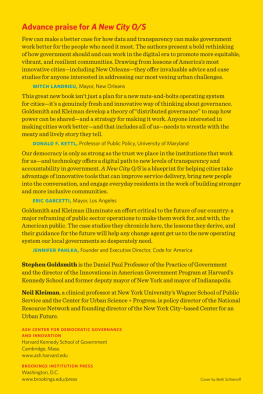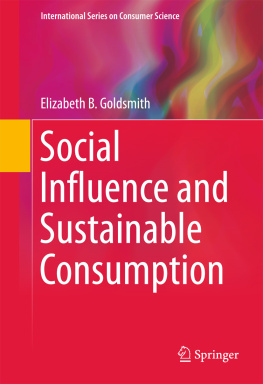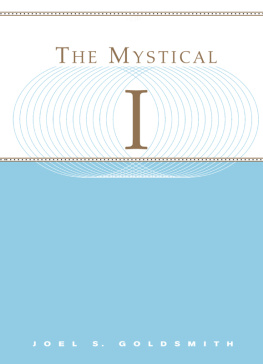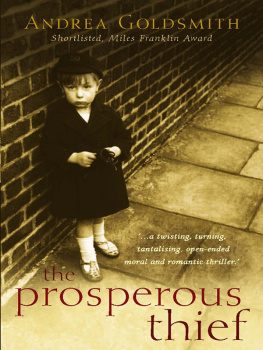Kenneth Goldsmith [Goldsmith - Wasting Time on the Internet
Here you can read online Kenneth Goldsmith [Goldsmith - Wasting Time on the Internet full text of the book (entire story) in english for free. Download pdf and epub, get meaning, cover and reviews about this ebook. year: 2016, publisher: HarperCollins, genre: Art. Description of the work, (preface) as well as reviews are available. Best literature library LitArk.com created for fans of good reading and offers a wide selection of genres:
Romance novel
Science fiction
Adventure
Detective
Science
History
Home and family
Prose
Art
Politics
Computer
Non-fiction
Religion
Business
Children
Humor
Choose a favorite category and find really read worthwhile books. Enjoy immersion in the world of imagination, feel the emotions of the characters or learn something new for yourself, make an fascinating discovery.

- Book:Wasting Time on the Internet
- Author:
- Publisher:HarperCollins
- Genre:
- Year:2016
- Rating:3 / 5
- Favourites:Add to favourites
- Your mark:
- 60
- 1
- 2
- 3
- 4
- 5
Wasting Time on the Internet: summary, description and annotation
We offer to read an annotation, description, summary or preface (depends on what the author of the book "Wasting Time on the Internet" wrote himself). If you haven't found the necessary information about the book — write in the comments, we will try to find it.
Kenneth Goldsmith [Goldsmith: author's other books
Who wrote Wasting Time on the Internet? Find out the surname, the name of the author of the book and a list of all author's works by series.
Wasting Time on the Internet — read online for free the complete book (whole text) full work
Below is the text of the book, divided by pages. System saving the place of the last page read, allows you to conveniently read the book "Wasting Time on the Internet" online for free, without having to search again every time where you left off. Put a bookmark, and you can go to the page where you finished reading at any time.
Font size:
Interval:
Bookmark:

For Finnegan and Cassius
Im wasting time on the Internet. I click to the New York Times front page to see the latest headlines and today a major nuclear deal with Iran was signed. The banner headline screams HISTORY and even though I havent really been following the story, I click on it. Im taken to a page with an embedded video that features Thomas Friedman asking Obama to explain what he thinks the United States gained from the nuclear deal with Iran. I check the time on the videothree and a half minutesand figure thats not too long to listen to the president speak. He speaks; I watch. He continues to speak; I scroll through my Twitter feed but I still listen. I click back on the Times window and watch again. Somewhere about the three-minute mark, I start to think, Am I really wasting time on the Internet? This is important stuff that Ive stumbled on to. Im struggling to see whats so shameful about this. The video ends and, impressed by what the president was saying, I start to read Friedmans lengthy article about this beneath the video. I read the first few paragraphs carefully, then scroll down and read some more. Its starting to get too granular for me. But my interest is piqued. Although Im not going to read this piece to the end, Im going to start following this story as it unfurls over the next few days. I stumbled on it and got hooked. Is my engagement deep? Not right now. But judging by the way these things tend to go, as I start to follow the story, my appetite for the topic will most likely become voracious. I cant see this eventone that happens several times a dayas being anything other than good. Because of it, Im better informed, more engaged, and perhaps even a bit smarter.
After I finish with this article, I click over to Facebook and find myself watching a video of Keith Richards discussing how he gets ideas for his songs. He says that when hes in restaurants and overhears conversation coming from the next table, he simply writes down what theyre saying. Give me a napkin and a pen, he says, smiling. You feel that one phrase could be a song. Although the video is only a minute long, its packed with wisdom. Really? Could his process be that simple, that pure? After listening to Keith, I feel inspired. After all, I feel like I spend tons of time eavesdropping on Facebook conversations. Might I be able to wring a song or a poem out of those as well?
Im back on Facebook, and the next thing I know Im looking at this incredible black-and-white photo from 1917 of a full-size battleship being built in New Yorks Union Square. The picture is huge and brimming with details. I click on it and Im taken to a website. As I scroll down, theres a short explanatory text about how this came to be, followed by a dozen more giant, rich photos of the ship being built in progress. Its fascinating. I just wrote a book about New York City and Im floored that I somehow missed this but grateful to know about it. I bookmark the page and move on.
What is wasting time on the Internet? Its not so easy to say. It strikes me that it cant be simply defined. When I was clicking around, was I wasting time because I shouldve been working instead? But I had spent hours workingin front of the same screenand quite frankly I needed a break. I needed to stop thinking about work and do a bit of drifting. But, unlike the common perception of what we do when we waste time on the Internet, I wasnt watching cat videoswell, maybe one or two. I was actually interested in the things that I stumbled on: the president, the rock star, and the battleship. I had the choice not to click on these things, but I chose to do so. They seemed to me to be genuinely interesting. There were many more things that I didnt click on.
Listening to Internet pundits tell it, youd think we stare for three hours at clickbaitthose web pages with hypersensational headlines that beg you to click on themthe way we once sat down and watched three hours of cartoons on Saturday morning TV. But the truth is most of us dont do any one thing on the Internet for three hours. Instead, we do many things during that time, some of it frivolous, some of it heavy. Our time spent in front of the computer is a mixed time, a time that reflects our desiresas opposed to the glazed-eyed stare we got from sitting in front of the television where we were fed something we ultimately werent much interested in. TV gave us few choices. Naturally, we became couch potatoes and many of us truly did feel like we wasted our timeas our parents so often chided usrotting away in front of the TV.
Im reading these daysironically, on the webthat we dont read anymore. People often confess this same thing to me when they hear Im a poet. The other day, I was opening up a bank account and the associate working at the bank, when he found out what I did, sighed and admitted that he doesnt read as much as he used to. I asked him whether he had a Facebook account, which he did, and a Twitter, which he also did. I asked him whether he sent and received e-mails. Yes, he said, many every day. I told him that he was, in fact, reading and writing a lot. Were reading and writing more than we have in a generation, but we are doing it differentlyskimming, parsing, grazing, bookmarking, forwarding, and spamming languagein ways that arent yet recognized as literary, but with a panoply of writers using the raw material of the web as the basis for their works its only a matter of time until it is.
I keep reading that in the age of screens weve lost our ability to concentrate, that weve become distracted, unable to focus. But when I look around me and see people riveted to their devices, Ive never seen such a great wealth of concentration, focus, and engagement. I find it ironic that those who say we have no concentration are most bothered by how addicted people are to their devices. I find it equally ironic that most of the places I read about how addicted we are to the web is on the web itself, scattered across numerous websites, blog posts, tweets, and Facebook pages.
On those blogs, I read how the Internet has made us antisocial, how weve lost the ability to have a conversation. But when I see people with their devices, all I see is people communicating with one another: texting, chatting, IMing. And I have to wonder, In what way is this not social? A conversation broken up into short bursts and quick emoticons is still a conversation. Watch someones face while theyre in the midst of a rapid-fire text message exchange: its full of human emotion and expressionanticipation, laughter, affect. Critics claim that even having a device present acts to inhibit conversation, and that the best antidote to our technological addiction is a return to good old-fashioned face-to-face conversation. They say, Conversation is there for us to reclaim. For the failing connections of our digital world, it is the talking cure. But this seems to ignore the fact that smartphones are indeed phones: two-way devices for human-to-human conversations, replete with expressive vocal cadence and warmth. Is conversation over the telephone still140 years after the phone was inventedsomehow not considered intimate enough, lessened because it is mediated by technology?
But beyond that, life is still full of attentive, engaged face-to-face conversations and close listening, be it at the many conferences, lectures, or readings I attend where large audiences hang on every word the speakers say, or my own therapy sessionsnothing more than two people in a roomthe tenor and intensity of which hasnt changed in decades despite several technological revolutions. When a student comes and finds me during office hours, that studentnormally tethered to their devicecan still go deep without one. Even my seventeen-year-old son, awash in social media, still demands that we talk in the darkness of his bedroom each night before he goes to sleep, just as we have done his entire life. Its a ritual that neither of us are willing to forgo in spite of our love of gadgets. Everywhere I lookon the street, in restaurants and cafs, in classrooms, or waiting in line for a moviein spite of dire predictions, people still seem to know how to converse.
Font size:
Interval:
Bookmark:
Similar books «Wasting Time on the Internet»
Look at similar books to Wasting Time on the Internet. We have selected literature similar in name and meaning in the hope of providing readers with more options to find new, interesting, not yet read works.
Discussion, reviews of the book Wasting Time on the Internet and just readers' own opinions. Leave your comments, write what you think about the work, its meaning or the main characters. Specify what exactly you liked and what you didn't like, and why you think so.


